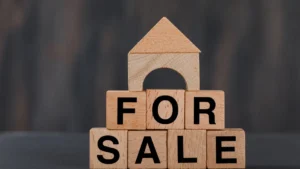Deciding between selling or renting out your house can be challenging. Whether you’re moving to a new city, upgrading to a bigger home, or facing financial changes, understanding the pros and cons of each option is crucial.
This guide explores the key factors to consider when making this decision, including financial implications, long-term benefits, risks, and market conditions in South Africa.
Key Considerations Before Deciding
Before determining whether to sell or rent out your home, ask yourself these questions:
- What is the current property market like? – Are property prices rising, or is the market slow?
- Do you need immediate funds? – Will selling provide a lump sum that could be better invested elsewhere?
- Are you willing to be a landlord? – Managing tenants comes with responsibilities and potential risks.
- What are the tax implications? – Consider capital gains tax on selling vs rental income tax.
- Will your home appreciate in value? – If the area is growing, holding onto the property might be beneficial.
Selling Your Home: Pros & Cons
✅ Advantages of Selling
1. Access to Immediate Cash
Selling provides a lump sum that you can use to buy another property, invest, or pay off debts.
2. No Landlord Responsibilities
You don’t have to deal with tenant issues, maintenance costs, or lease agreements.
3. Avoid Market Fluctuations
Property values can drop due to economic downturns, high-interest rates, or oversupply in the market. Selling now can protect you from future devaluation.
4. No Ongoing Costs
Owning a property comes with rates, levies, maintenance, and insurance. Selling eliminates these expenses.
❌ Disadvantages of Selling
1. Capital Gains Tax (CGT)
If the property has appreciated significantly, you may be liable for CGT on the profit made from the sale.
2. Market Timing Risks
If the market is slow, you may struggle to sell at your asking price. It may take months to secure a buyer.
3. Lost Long-Term Investment Opportunity
Real estate generally appreciates over time. Selling now means losing potential future gains.
Renting Out Your Home: Pros & Cons
✅ Advantages of Renting Out Your Home
1. Steady Passive Income
Renting can provide monthly income that covers mortgage repayments, maintenance, and levies.
2. Property Value Appreciation
By holding onto your property, you can benefit from long-term capital growth.
3. Tax Benefits
Certain expenses, such as rates, levies, repairs, and interest on a home loan, may be tax-deductible when renting out a property.
4. Flexibility for Future Plans
If you’re unsure about relocating permanently, renting allows you to return later without having to repurchase a home.
❌ Disadvantages of Renting Out Your Home
1. Tenant Risks
Tenants may default on rent, damage the property, or be difficult to evict.
2. Ongoing Maintenance & Costs
As a landlord, you’re responsible for repairs, levies, and legal compliance.
3. Managing the Property
If you don’t hire a rental agent, managing the property can be time-consuming, dealing with late payments, maintenance requests, and lease agreements.
4. Market Uncertainty
Rental demand can fluctuate. If you struggle to find tenants, you may experience vacant months with no rental income.
Key Financial Comparisons: Selling vs Renting Out
| Factor | Selling | Renting Out |
|---|---|---|
| Upfront Cash | Large lump sum | No immediate large payout |
| Income | None after sale | Monthly rental income |
| Ongoing Costs | None | Maintenance, rates, levies |
| Market Risk | Avoid future depreciation | Subject to rental market changes |
| Tax Implications | Capital Gains Tax (if applicable) | Income Tax on rental earnings |
When to Sell Your Home
- You need immediate cash to invest elsewhere.
- The market is high, and you can sell at a profit.
- You don’t want to deal with tenant issues or property management.
- The property requires major repairs that you can’t afford.
- You’ve relocated permanently and don’t plan to return.
When to Rent Out Your Home
- You want to generate passive income.
- The property is in a high-demand rental area.
- You believe property values will increase over time.
- You’re not ready to sell and want to keep future options open.
- You plan to move back later and need a place to stay.
Frequently Asked Questions
Is renting out a house better than selling?
It depends on your goals. Renting provides steady income and long-term appreciation, while selling offers immediate cash and no ongoing costs.
Do I pay tax on rental income in South Africa?
Yes, rental income is taxable. However, expenses like maintenance, levies, and interest on a home loan can be deducted.
What are the risks of renting out my house?
Tenant issues, maintenance costs, market fluctuations, and potential vacancy periods. Hiring a rental agent can help manage these risks.
How do I decide whether to sell or rent out my property?
Consider your financial situation, property location, market trends, and long-term investment strategy.
Can I sell my house while it’s being rented out?
Yes, but you must follow legal procedures, including giving tenants proper notice.
Final Thoughts: Which Option is Best for You?
There’s no one-size-fits-all answer—your decision depends on financial goals, lifestyle, and market conditions. Selling may be best if you need immediate funds and don’t want long-term management responsibilities. However, renting out your property could be a smarter choice if you’re looking for passive income and long-term investment growth.








